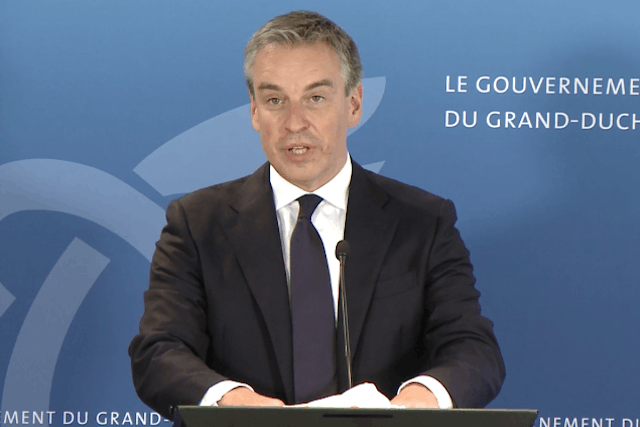Meisch explained that the aim is for schools to function “as normal as possible”, and as the new school year kicks off on 15 September, it was important to find an organised model which could be applied as much as possible not just for the back-to-school period, but for the entire school year, in order to “ensure the right to education and on the other hand guarantee a minimum of risks”.
Among the measures taken has been a reworked testing strategy, with a focus on families with children, in which all students and teachers are invited to be tested (with invitations already in the process of being sent). The strategy aims to provide “maximum safety after the holidays”, given that a bulk of recent positive cases were linked to those returning from holidays. The minister also anticipates mobile testing, e.g. in a bus near a school, which could potentially increase participation and make it easier for wide-scale covid-19 testing to be carried out.
As the country gears up for autumn and winter--and the normal cold and flu season--the minister also urged parents to exercise caution if a child displays symptoms of a cold or headache, for example, which might be but are not always linked to covid-19. While parents should not overreact, it is important that children displaying even one covid-19 symptom remain at home, “and, of course, get them tested”.
However, at this time there is not additional family leave time foreseen, and the ordinary allowance of family leave for the case of a sick child still applies.
Inside education facilities
While classrooms previously operating at half capacity “didn’t work badly”, the minister says this situation would not be ideal for an entire year. He added that in some cases, individuals could not participate in the same manner, not everyone had educational materials or support in the family, etc. Moreover, “What’s important is contact,” Meisch added. “This demand for education, to which everyone has a right, is not compatible with the situation like there was before.”
The education and health ministries have been working closely together and will continue doing so, and in recent weeks this consultation and exchange has been more targeted. Students and teachers are, of course, encouraged to wash and disinfect hands often. Routes will be mapped out in schools to ensure the safe circulation of students. Masks would be required in common areas, until students arrive in their school seats (“with exceptions, of course”) --although high schools can decide themselves whether masks will be required during courses, for example.
Minister Meisch also said schools have been asked to do a large, main aeration of their facility in the evenings plus smaller ones throughout the day.
For meals there will be a maximum of 10 students at a table and masks should be kept on until eating--basically the same rules which currently apply at restaurants. Sanitary measures will also be observed for school field trips, with more information on this expected to be forthcoming.
Physical education should also continue, and students will be required to wear masks when entering sports halls or swimming pool facilities but can remove them while actually exercising. They will also be obliged to wash their hands before and after their sports lesson.
In the case of vulnerable students, considerations should be made on a case-by-case basis but these individuals do not necessarily need to stay at home, rather schools could look into other options such as maintaining a greater distance between students or encouraging smaller groups.
Sample scenarios
Meisch also gave more insight into what would happen were one or more students to test positive. If a single student has tested positive, a classroom quarantine could be waived, although the student would of course be asked to isolate. If a group of students in the same or nearby classrooms tested positive, then quarantine would take effect. If a chain of positive cases were to occur, not only could classes be placed in quarantine, but entire schools could be asked to close, at least temporarily.
In the cases of schools with more positive cases, it is expected that stronger measures would be carried out as well, and overall measures could be strengthened over the course of the year at schools more broadly. Meisch has also promised there to be regular reporting to the public at large concerning the school situation.
